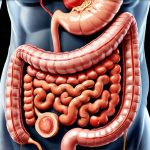Maintaining good health as we age requires mindful attention to many factors, but nutrition often takes center stage. As individuals enter their senior years, physiological changes impact digestion, making it crucial to adapt dietary habits for optimal well-being. These changes aren’t necessarily about restriction; they’re more about smart choices that support continued health and vitality. Understanding how the digestive system evolves with age and knowing what nutritional strategies to employ can significantly improve quality of life. This article will explore these nuances, providing practical guidance on elderly nutrition for healthy digestion.
A decline in digestive function is a common part of aging, but it’s not an inevitable one! Many factors contribute, including reduced stomach acid production, slower intestinal motility, and decreased absorption rates. These changes can lead to issues like constipation, bloating, and nutrient deficiencies. Fortunately, tailored dietary adjustments can mitigate these effects and support a comfortable, healthy digestive process throughout the golden years.
The Importance of Dietary Fiber
Fiber is arguably one of the most important components in an elderly person’s diet for promoting healthy digestion. It adds bulk to stool, softening it and making it easier to pass, thereby preventing constipation – a frequent complaint among seniors. Beyond regularity, fiber also feeds beneficial gut bacteria, contributing to a healthier microbiome which plays a role in overall health and immunity. Choosing the right types of fiber is essential; both soluble and insoluble fiber are valuable.
Soluble fiber dissolves in water, forming a gel-like substance that can help lower cholesterol and regulate blood sugar levels. Sources include oats, beans, apples, and citrus fruits. Insoluble fiber doesn’t dissolve but adds bulk to stool, aiding in its movement through the digestive tract. Good sources are whole wheat bread, vegetables like broccoli and carrots, and bran cereals. Aiming for a gradual increase in fiber intake is key; suddenly increasing fiber can actually cause digestive discomfort.
It’s also important to pair increased fiber with adequate hydration. Fiber absorbs water, so without enough fluids, it can worsen constipation. Encourage seniors to drink plenty of water throughout the day – at least eight glasses – and consider hydrating foods like soups and fruits with high water content.
Hydration & Nutrient Absorption
Water is essential for nearly every bodily function, and its importance doesn’t diminish with age; in fact, it often increases. As we get older, our sense of thirst can decline, making seniors more susceptible to dehydration. Dehydration directly impacts digestive health, leading to harder stools and increased risk of constipation. Beyond stool consistency, adequate hydration is crucial for nutrient absorption.
Many elderly individuals experience reduced stomach acid production which hinders the breakdown of nutrients from food. Water aids in this process, assisting with enzymatic activity and ensuring that vitamins and minerals are effectively absorbed into the bloodstream. Furthermore, dehydration can mimic symptoms of other health problems, making diagnosis more difficult.
Encouraging regular fluid intake doesn’t always mean plain water is the only answer. Herbal teas, diluted fruit juices (with reduced sugar), and even water-rich fruits and vegetables can contribute to daily hydration goals. Small, frequent sips throughout the day are often better tolerated than large amounts at once.
Managing Common Digestive Issues
Constipation isn’t just uncomfortable; it can lead to more serious complications if left unaddressed. Beyond fiber and hydration, gentle physical activity plays a role in stimulating bowel movements. Even short walks or simple stretching exercises can make a difference. Another common issue is bloating and gas, often caused by certain foods or dietary habits. Identifying trigger foods – like beans, broccoli, onions, or carbonated beverages – and moderating their intake can provide relief.
Smaller, more frequent meals are also easier to digest than large ones. Overeating puts extra strain on the digestive system, leading to discomfort. Food diaries can be incredibly helpful in pinpointing sensitivities or intolerances that might be contributing to digestive problems. It’s important to note that some medications can also affect digestion; reviewing medication lists with a healthcare professional is advisable if digestive issues persist.
The Role of Probiotics & Prebiotics
Probiotics are live microorganisms that benefit gut health, while prebiotics act as food for these beneficial bacteria. Supporting the gut microbiome through both probiotics and prebiotics is especially important in older adults, whose gut flora can become less diverse with age. A healthy microbiome enhances digestion, strengthens immunity, and may even improve mental well-being.
Probiotic-rich foods include yogurt (with live cultures), kefir, sauerkraut, and kimchi. Prebiotic sources are found in many fruits, vegetables, and whole grains, such as bananas, onions, garlic, asparagus, and oats. Supplementing with probiotics can be an option, but it’s best to discuss this with a healthcare provider to determine the appropriate strain and dosage.
Gentle Food Preparation & Texture Modifications
Sometimes, digestive issues aren’t about what is eaten, but how it’s prepared. Overly processed foods often lack fiber and essential nutrients, while excessively fatty or spicy foods can irritate the digestive system. Opting for gentle cooking methods like steaming, poaching, or baking rather than frying can make food easier to digest.
Texture modifications may also be necessary for individuals with chewing difficulties or swallowing problems. Pureed foods, soft-cooked vegetables, and well-tenderized meats can ensure adequate nutrient intake without causing discomfort. It’s important to maintain variety even within these texture constraints to prevent boredom and encourage healthy eating habits.
Ultimately, supporting healthy digestion in the elderly is about creating a personalized approach that addresses individual needs and preferences. By focusing on fiber-rich foods, staying well-hydrated, incorporating probiotics and prebiotics, and making thoughtful adjustments to food preparation and texture, seniors can maintain comfortable digestive function and enjoy a higher quality of life.


















